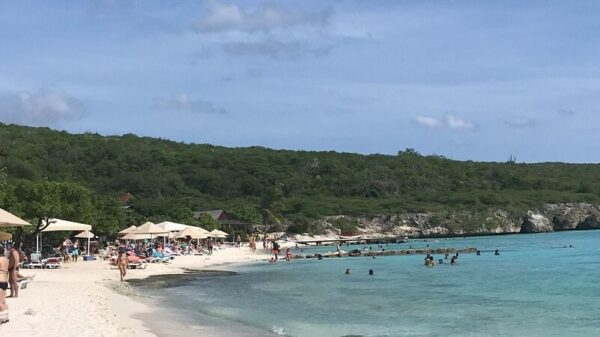Are you planning a trip to Curaçao and wondering about the language spoken there? In this article, you will find information about the official language and the commonly used native language Papiamentu. We will also provide information on other languages many locals are proficient in, so you can communicate effectively during your vacation.
This page contains affiliate links marked with an asterisk (*). If you decide to make a purchase after clicking on a link, we may receive a commission at no additional cost to you.
Dutch – The Official Language of Curaçao
Although Curaçao, like Aruba, is now an autonomous country in the Caribbean, the head of state is still King Willem-Alexander. Due to the colonial history of the Netherlands and Curaçao’s membership in the Kingdom of the Netherlands, Dutch remains the official language, primarily used in administrative contexts. It is often the language of choice for communication with Dutch expatriates as well.
Papiamentu – The Language of the Locals in Curaçao
Papiamentu is the most widely spoken language in Curaçao, used by almost all locals. It is a Creole language that represents a combination of several languages. Papiamentu primarily blends elements from:
- Portuguese,
- Dutch, and
- Spanish.
Additionally, English and African elements have also influenced the language.
The language originated in the 17th century, a grim period when slaves from various African countries communicated among themselves and with Portuguese slave traders. Since slaves were not permitted to speak or learn Dutch, the Dutch component in Papiamentu is relatively small. The development of Papiamentu is thus deeply rooted in historical and linguistic exchange across cultures.
Other Common Languages in Curaçao
In addition to Papiamentu and Dutch, most native people of Curaçao also speak Spanish and English. Therefore, as a tourist, you will be able to communicate effectively if you speak English, especially in the tourism and hospitality sectors.
Furthermore, many tours and excursions on the island are offered with Spanish- and English-speaking guides. If you want to bring a smile to the locals’ faces, try learning a few words in Papiamentu. A warm “Danki” (thank you) or “Bonochi” (good evening) is always appreciated by the residents of Curaçao.
Learning Languages for Your Vacation in Curaçao
Since locals, like people everywhere, appreciate it when you can speak a few words of the local language, we have compiled some important phrases and vocabulary in Papiamentu and Dutch for you below. If you master these, you show that you have engaged with your vacation destination and will surely bring a smile to your counterpart’s face.
If you want to learn more terms and phrases in Papiamentu before your trip, consider getting a dictionary. This can also help you pass the time on the airplane and look forward to your vacation with excitement. It’s also a fun way to get in touch with the culture of the island.

Language Courses for Your Trip to Curaçao
For language enthusiasts and those planning a longer stay in Curaçao, participating in a Dutch language course is recommended. There are now numerous options for learning a language comfortably from home. If you have no prior knowledge, a Dutch Language Course for Beginners is suitable, where you can learn the basics. If you have previously learned the language in school or have taken a course before, a Dutch Language Course for Advanced Learners would be the right choice. Here you will learn additional vocabulary and will be able to understand more complex contexts. You can also choose an Express Course, which is specifically tailored to the needs of travelers and provides useful vocabulary and helpful phrases.
Conclusion: Creating Cultural Connections – Communication in Curaçao
You can generally get by with English in Curaçao, especially in the tourism and hospitality sectors. Locals on the Caribbean island typically speak both Dutch and Papiamentu fluently. To make the locals happy (and yourself as well), it’s always nice to learn and use at least a few commonly used terms.
Whether you’re strolling through the colorful streets of Willemstad, crossing the Queen Emma Bridge, exploring the little museums, or admiring art influenced by the island’s mixed heritage, learning a few words can truly be a part of your meaningful travel experience. This small change in your approach opens doors to deeper international understanding.








